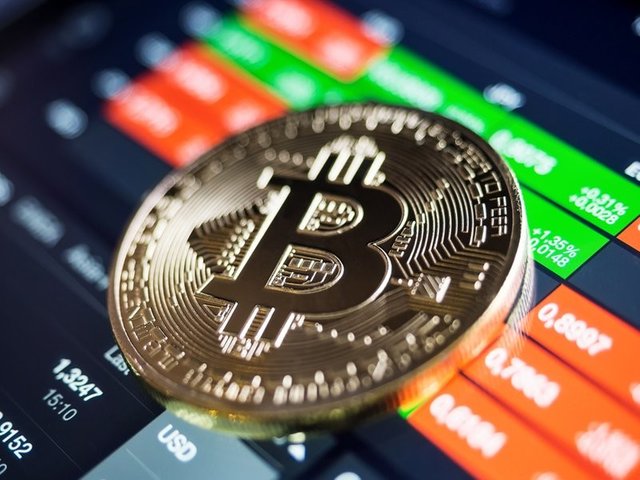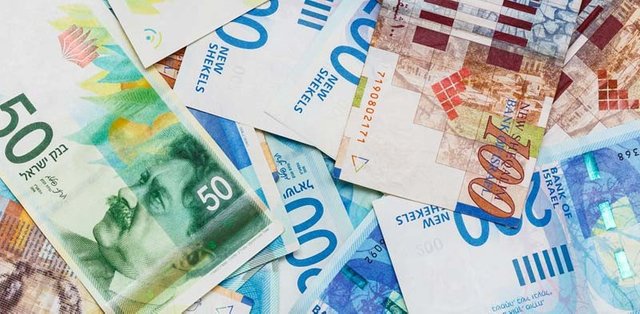
The Finance Ministry and Bank of Israel are thinking about issuing a computerized cash, a conceivable reaction to the excited digital money and bitcoin rage.
The computerized shekel would record each exchange by cell phone and make it more hard to dodge tax collection, as per a back authority who addressed The Jerusalem Post on state of secrecy.
For a while now, controllers have been analyzing the likelihood of a state-supported money, and the legislature could audit a provisional lawful system in January. The computerized shekel would be indistinguishable in incentive to the physical shekel as of now being used.
With money, you make an exchange promptly, not at all like with a bank exchange or check, which takes a couple of days to clear. Computerized money would act comparatively to money by not going through a bank-clearing framework, but instead changing hands promptly.
"You can envision that as opposed to giving you a bit of paper saying the Bank of Israel on it, I can send you a bit of advanced code that was issued by a national bank," the authority stated, with the computerized cash being put away in an advanced wallet.
It is misty where the advanced wallet would be found – either in a Bank of Israel account or on your cell phone. Furthermore, on the off chance that some person stole your telephone, what might happen to your advanced wallet?
It is conceivable that national banks may see computerized monetary forms as a risk, undermining the concentrated bank-clearing framework. In that light, state-supported advanced monetary forms might be an endeavor to contend with decentralized digital forms of money, for example, bitcoin. It stays to be perceived how computerized monetary forms will influence the lives of purchasers.
With bitcoin running on blockchain innovation – a digitized and decentralized open record that enables you to dependably verify exchanges – the Bank of Israel is likewise investigating fusing blockchain into its operations.
However bitcoin has confronted day by day unpredictability, with twofold digit vacillations in bitcoin-to-dollar changes.
"From the get-go, when new things rise and individuals battle to see how to esteem it, you get high instability," said Lou Kerner, an accomplice at CryptoOracle, a funding firm and bitcoin speculator. "That doesn't imply that it's not a thing and it doesn't imply that it ought to be prohibited."
Kerner, who went by Israel not long ago, weighed into the current Israel Securities Authority choice to ban bitcoin-related organizations from exchanging on the Tel Aviv Stock Exchange.

"Governments have two choices," said Kerner. "They can either reveal the formality or present a royal welcome – and they reveal the formality at their own hazard. In this way, it turns out, these [bitcoin-related] organizations will go elsewhere. What's more, the Tel Aviv Stock Exchange misses out. It resembles saying, 'We won't permit Internet organizations to exchange.'"
A state-supported advanced money doesn't exist anyplace on the planet, not even in Sweden, which has gained the most ground so far in moving far from money.
For a long time, the Knesset has investigated how to decrease the utilization of money, as per TheMarker. Different voting demographics in Israel, which are more inclined to managing operating at a profit showcase, have constrained their legislators to prevent the move.

To issue a state digital money, the Bank of Israel's designs would should be affirmed by the Knesset, the fund official included.
"There's a ton that individuals need to consider before proceeding with this change," the authority said. "We're taking a gander at the lawful, budgetary, administrative and illegal tax avoidance sides of this."
Not at all like bitcoin, where the set number of bitcoins is settled, sovereign governments can print and issue however much state cash they want. That speculatively makes bitcoins more impervious to inflationary weight – like gold – as far as store esteem.
It might require some investment for bitcoin to get up to speed, as the market capitalization of gold overall stands at some $8 trillion. The aggregate estimation of all bitcoin available for use is around $200 billion, as per Kerner.
"Gold has been a store [of] esteem for a long time," Kerner said. "Surprisingly nothing keeps going forever. Furthermore, now we have something that is an obviously better store of significant worth, in that it's considerably less demanding to transmit and send and purchase and offer than gold is. You can take all your bitcoins with you in a way that is hard for you to take your gold. A sovereign country can take your gold yet it can't take your bitcoin."
Furthermore, given that bitcoin is just the most well known use of blockchain up until this point, it's simply an issue of time before a niftier, more productive digital currency replaces it.
Kerner analogized bitcoin's part to how the web-based social networking webpage Friendster was overshadowed by MySpace, which was then supplanted by Facebook.
"As far as a store of significant worth, bitcoin is superior to the dollar, and something hypothetically could go along and be superior to bitcoin," Kerner said.